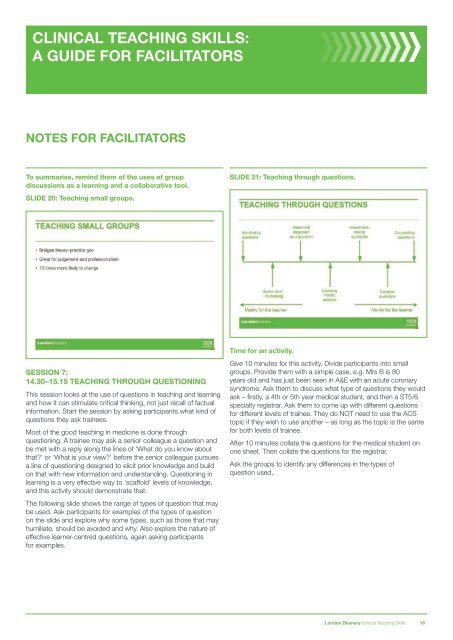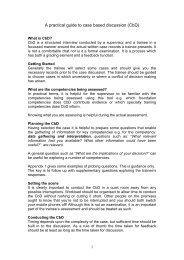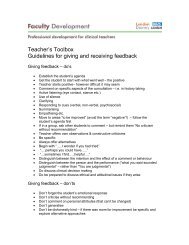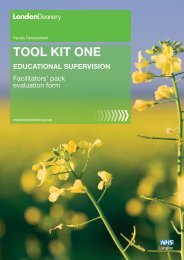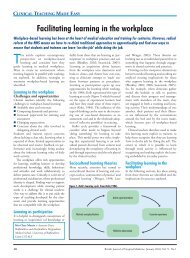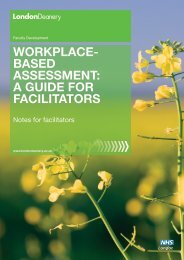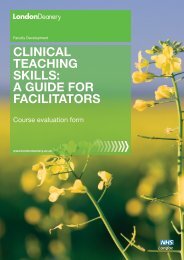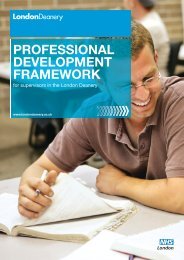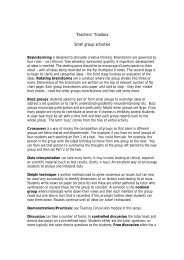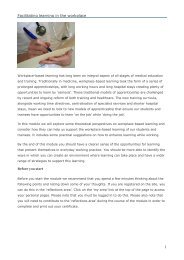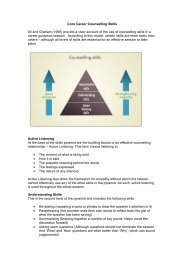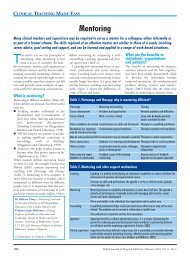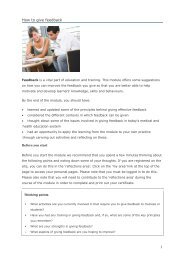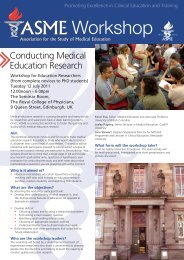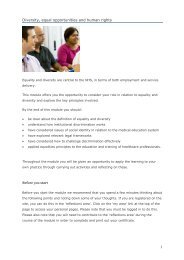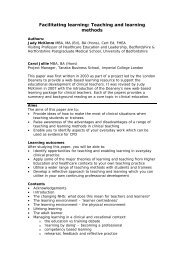A GuIdE for fACILITATorS - Faculty Development - London Deanery
A GuIdE for fACILITATorS - Faculty Development - London Deanery
A GuIdE for fACILITATorS - Faculty Development - London Deanery
You also want an ePaper? Increase the reach of your titles
YUMPU automatically turns print PDFs into web optimized ePapers that Google loves.
Clinical Teaching Skills:<br />
A GUIDE FOR FACILITATORS<br />
notes <strong>for</strong> Facilitators<br />
To summarise, remind them of the uses of group<br />
discussions as a learning and a collaborative tool.<br />
Slide 21: Teaching through questions.<br />
Slide 20: Teaching small groups.<br />
Time <strong>for</strong> an activity.<br />
Session 7:<br />
14.30–15.15 Teaching through Questioning<br />
This session looks at the use of questions in teaching and learning<br />
and how it can stimulate critical thinking, not just recall of factual<br />
in<strong>for</strong>mation. Start the session by asking participants what kind of<br />
questions they ask trainees.<br />
Most of the good teaching in medicine is done through<br />
questioning. A trainee may ask a senior colleague a question and<br />
be met with a reply along the lines of ‘What do you know about<br />
that’ or ‘What is your view’ be<strong>for</strong>e the senior colleague pursues<br />
a line of questioning designed to elicit prior knowledge and build<br />
on that with new in<strong>for</strong>mation and understanding. Questioning in<br />
learning is a very effective way to ‘scaffold’ levels of knowledge,<br />
and this activity should demonstrate that.<br />
The following slide shows the range of types of question that may<br />
be used. Ask participants <strong>for</strong> examples of the types of question<br />
on the slide and explore why some types, such as those that may<br />
humiliate, should be avoided and why. Also explore the nature of<br />
effective learner-centred questions, again asking participants<br />
<strong>for</strong> examples.<br />
Give 10 minutes <strong>for</strong> this activity. Divide participants into small<br />
groups. Provide them with a simple case, e.g. Mrs B is 80<br />
years old and has just been seen in A&E with an acute coronary<br />
syndrome. Ask them to discuss what type of questions they would<br />
ask – firstly, a 4th or 5th year medical student, and then a ST5/6<br />
specialty registrar. Ask them to come up with different questions<br />
<strong>for</strong> different levels of trainee. They do NOT need to use the ACS<br />
topic if they wish to use another – as long as the topic is the same<br />
<strong>for</strong> both levels of trainee.<br />
After 10 minutes collate the questions <strong>for</strong> the medical student on<br />
one sheet. Then collate the questions <strong>for</strong> the registrar.<br />
Ask the groups to identify any differences in the types of<br />
question used.<br />
<strong>London</strong> <strong>Deanery</strong> Clinical Teaching Skills<br />
16


